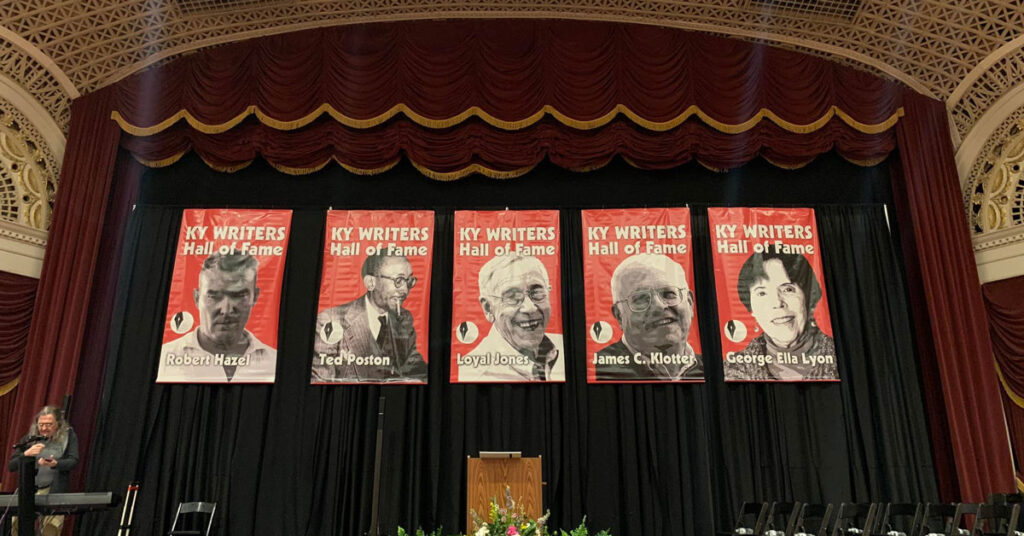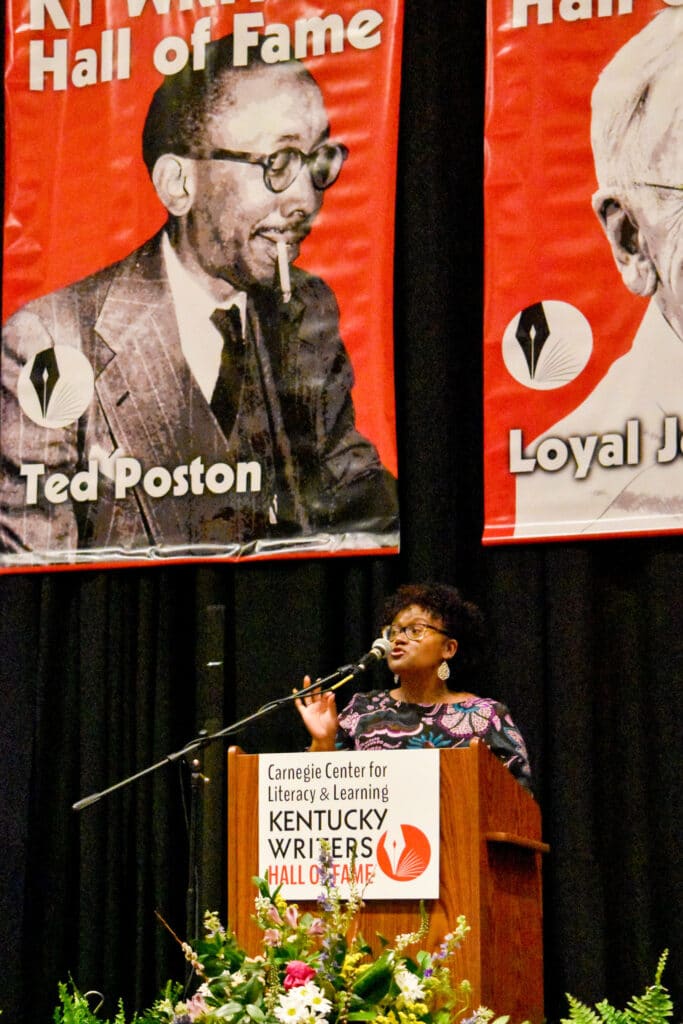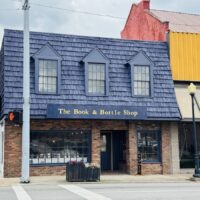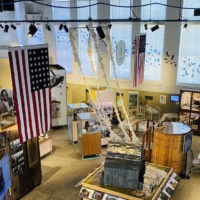Lexington, Ky. — The celebrated Black journalist and Hopkinsville native Ted Poston was among five literary giants whose faces graced eight-foot-tall banners over the stage of the Kentucky Theatre at the 10th annual induction ceremony Thursday night for the Kentucky Writers Hall of Fame. The Carnegie Center for Literacy & Learning sponsors the recognition.

Poston, who began his career at his parents’ newspaper in Hopkinsville and went on to cover the Harlem Renaissance and the civil rights movement for the New York Post before his death in 1974, joined poet and former University of Kentucky creative writing professor Robert Hazel in receiving the honor posthumously this year.
- RELATED: Ted Poston’s ‘Dark Side’ will launch Museum Book Club
- RELATED: There was more than one ambitious journalist in Hopkinsville’s Poston family
Historian James C. Klotter and former Kentucky Poet Laureate George Ella Lyon, who were on hand to be recognized, both received standing ovations. The fifth inductee was Loyal Jones, retired former director of Berea College’s Appalachian Center, who could not make the trip from his home in North Carolina.
Former Lexington Herald-Leader editor and columnist Tom Eblen, the Carnegie Center’s literary liaison, described Poston as “the first African American to become a star reporter at a major white-owned metropolitan newspaper.”
He noted some of Poston’s most celebrated work, which included his coverage of the 1931 Scottsboro Boys trial in Alabama at a time when black reporters were against the law in that state, and of the 1949 Groveland Four case in Florida, for which he received two of journalism’s highest honors, the George Polk and Heywood Broun awards. The New York University School of Journalism named Poston’s Groveland Four series as among the 100 most important journalistic works of the 20th century.
Poston also wrote a series of short stories about his early life in segregated Kentucky that was published posthumously in the 1991 book “The Dark Side of Hopkinsville.”

During the ceremony, Ashlee Clark of Louisville Public Media read a fiery and deeply pessimistic excerpt from “Plain Talk for Both Sides,” Poston’s review of Charles E. Silberman’s 1966 study of race relations in America, “Crisis in Black and White.”
“The reality of race relations in this country is so terrible that none of us dares to face it, or even admit the truth,” Poston wrote. “No one dares to face the obvious fact, for instance, that white America has no intention of granting the Negro his full and equal rights, and that all the Negro can hope to get is what he’s willing and powerful enough to take. On the other hand, no responsible Negro leader can afford to admit publicly that if all discriminatory practices were abruptly halted at, say, 11 a.m. tomorrow, the Negro’s position in this country would remain fundamentally unchanged. For an inferior cannot compete on terms of equality. And America, not without deliberation, has made the Negro an inferior.”
About 150 people attended the ceremony, including two past Hall of Fame inductees, Gurney Norman and Bobbie Ann Mason. Carnegie Center executive director Neil Chethik, who is retiring this month and was recognized for his work over the past decade by Lexington Mayor Linda Gorton, said the Hall of Fame was started as a way to honor great writers with ties to the commonwealth from the early 19th century to the present.
“We wanted to lift up 200 years of great writing in this state,” Chethik said. “We also wanted to inspire up-and-coming writers to make their own mark, to try to find their face one day on an eight-foot banner.”
Chethik recalled his nervousness in 2015 while calling Wendell Berry to inform him that he was to be the first living writer inducted into the Hall of Fame. When Berry responded that it was “quite an honor,” Chethik was relieved. “And that’s been pretty much the reaction of every Kentucky writer I’ve contacted since then. Kentucky writers want to be appreciated by their fellow Kentuckians.”
Since the first class of inductees 10 years ago, the Hall of Fame has honored a wide swath of the state’s literary talent, both living and dead. Some of the best-known names include James Still and Robert Penn Warren (inducted in 2013); Thomas Merton (2014); Elizabeth Hardwick, Guy Davenport and Hunter S. Thompson (2015); Jean Ritchie (2016); Gayl Jones and Barbara Kingsolver (2017); Sue Grafton (2019); Sam Shepard (2020); and Nikky Finney, Caroline Gordon and Albert Stewart (2021).
In a survey of the past year in Kentucky literature, Eblen noted the deaths of two other Hall of Fame members, Ed McClanahan (2019) and bell hooks (2018). hooks, born Gloria Jean Watkins, was a Hopkinsville native.
Kevin Nance is a freelance arts journalist, photographer and poet in Lexington. He’s the author of “Midnight: Photographs and Haiku” and is the host of Out & About in Kentucky on RadioLex 93.9 FM.





